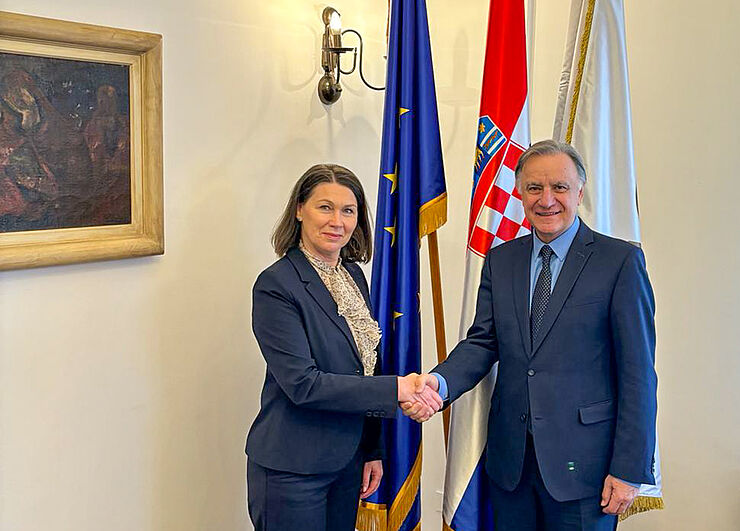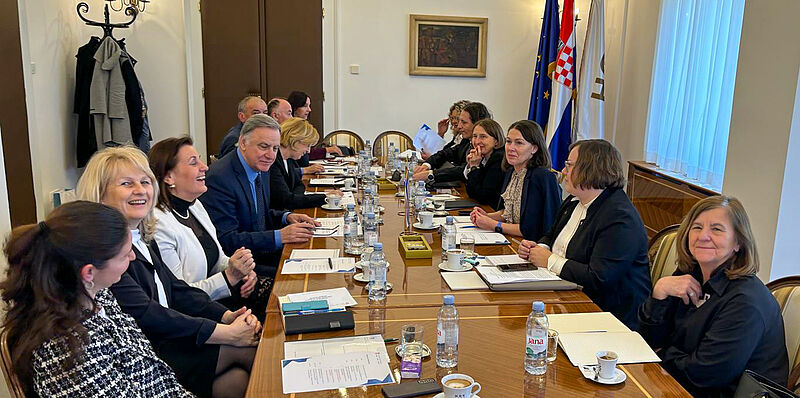On Wednesday, 20 March 2024, there was a working meeting of the President of the Court of Audit Jana Ahčin at the Auditor General of SAI Croatia Ivan Klešić in Zagreb.
The Slovenian delegation was represented by Second Deputy President mag. Mojca Planinšek, Supreme State Auditor Jerneja Vrabič and Advisor to the President and Head of IT Strategy Office, dr. Tomaž Kralj. Among the representatives of the SAI Croatia who actively participated in the meeting were Deputy President dr. Nediljka Rogošić and assistants to the Auditor General in charge of the fields which were subject matter of the discussion.

Representatives of both institutions discussed several topics of joint interest, thus they exchanged experiences and audit practices. Among the items on the agenda of the working meeting were possibilities and possible risks related to audits of projects included in the framework of Three Seas Initiative. Furthermore, the institutions discussed implementation of audits of Recovery and Resilience Facility. Related to this case, a new approach of the SAI Croatia was presented – the so-called agile approach also known as real time audit. At the heart of this approach stands the early provision of recommendations to the auditee, who is thereby able to adopt corrective measures and improve its operations as soon as possible, i.e. in real time. Among the discussed topics, there was ethics related to the use of artificial intelligence. The presentations made by representatives of the Slovenian SAI, where they pointed out risks and ethical dilemmas of the AI use, were followed by an exchange of experiences and consideration of the future plans of both SAIs.
The Auditor General of the SAI Croatia and the President of the Court of Audit expressed overall satisfaction with the cooperation so far that provides both institutions with new skills and experiences. They identified key areas of future cooperation, namely audits of Recovery and Resilience Facility, digitalisation of audit processes and use of IT.

